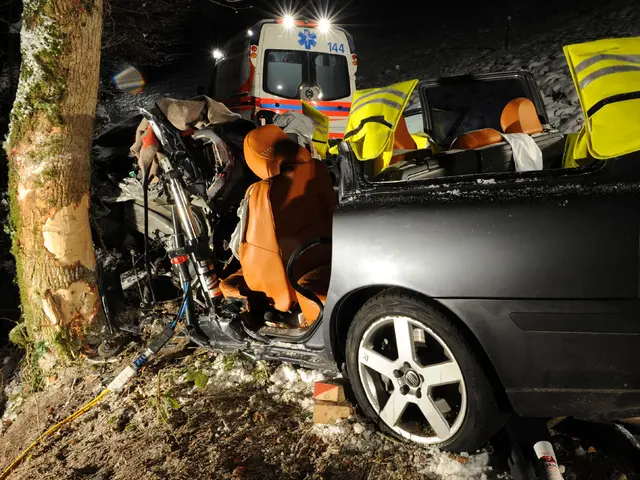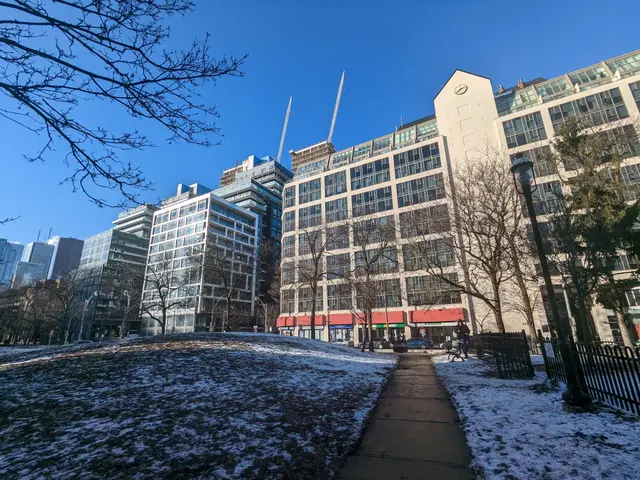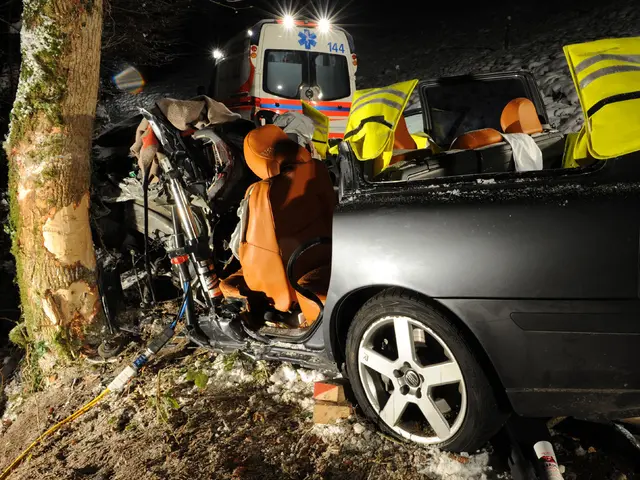Israel allegedly subjects Gaza civilians to hunger, lethal violence, and forced displacement, as declared by the Palestinian representative during a UN court hearing.
In a dramatic turn of events, a Palestinian diplomat has lobbed some serious allegations at Israel at the United Nations' highest court, accusing the country of starving, killing, and displacing civilians while intentionally targeting aid workers in Gaza. Israel, on the other hand, denies deliberately targeting civilians and humanitarian aid workers, choosing to skip the hearing at The Hague's International Court of Justice (ICJ).
The Palestinian ambassador to the Netherlands, Ammar Hijazi, put forth these damning accusations, claiming Israel is brazenly violating international law in the occupied territories. The ongoing hearings at the ICJ focus on a request by the UN General Assembly made last year, asking the court to weigh in on Israel's legal responsibilities after the country blocked the United Nations Relief and Works Agency (UNRWA) for Palestine refugees from operating on its territory.
Norway-sponsored General Assembly resolution requested an advisory opinion, a non-binding but legally important decision from the ICJ, on Israel's obligations in the occupied territories to "ensure and facilitate the unhindered provision of urgently needed supplies essential to the survival of the Palestinian civilian population." While Israel was absent from the court, its foreign minister, Gideon Saar, retorted, "I accuse UNRWA, I accuse the UN, I accuse the secretary-general, and I accuse all those that weaponized international law and its institutions in order to deprive the most attacked country in the world, Israel, of its most basic right to defend itself."
The humanitarian crisis in Gaza is escalating amidst this legal battle. Since March 2, Israel has blocked the entry of food, fuel, medicine, and essential humanitarian supplies. The World Food Programme revealed last week that its food stocks in the Gaza Strip had run out. Israel renewed its bombardment on March 18, breaking a ceasefire, and seized large parts of the territory, claiming it aims to push Hamas to release more hostages. Overnight into Monday, at least 27 Palestinians were killed in Israeli strikes, with at least 10 in Beit Lahia, including a prisoner released as part of the ceasefire and his family members.
Israel has historically maintained that it makes every effort to avoid harming civilians, often attributing civilian deaths to Hamas operatives hiding in densely populated areas. Nonetheless, the current situation in Gaza underscores the urgency of the ICJ hearings and the need for a clear determination of Israel's legal duties regarding humanitarian aid in the occupied territories.
- More on Gaza:
- Israeli official calls claims IDF targets aid workers 'blood libel' after UK minister calls for investigation
- World Food Programme stocks in Gaza have run out under Israel's blockade, UN agency says
- IDF admits responsibility for deadly attack on UN building last month
- Related Topics:
- Gaza
- Israel
- Israel-Hamas war
The ICJ hearings involve participation from 40 states and four international organizations and are likely to take several months for the court to rule[1][2][3]. The ongoing near-collapse of the humanitarian aid system in Gaza further highlights the gravity of this legal dispute and the international community's attention to ensure Israel upholds its obligations under international law.
[1] BBC News. (2025, March). Israeli ban on UNRWA comes into effect. [online] Available at: https://www.bbc.com/news/world-middle-east-58410866
[2] UN News. (2025, March). UNRWA Crisis in Gaza: World Food Programme food stocks run out under Israel's blockade. [online] Available at: https://news.un.org/en/story/2025/03/1616402
[3] Al Jazeera. (2025, March). Palestinians demand Israel faces war crimes trial at Hague over Gaza acts. [online] Available at: https://www.aljazeera.com/news/2025/3/12/palestinians-demand-israel-faces-war-crimes-trial-at-hague-over-gaza-acts
[4] Reuters. (2025, March). Israeli blockade devastates Gaza economy, putting tens of thousands at risk of poverty, unemployment - UNAMA. [online] Available at: https://www.reuters.com/world/middle-east/israeli-blockade-devastates-gaza-economy-putting-tens-thousands-risk-poverty-unama-2025-03-10/
[5] The Jerusalem Post. (2025, March). UNRWA crisis in Gaza: World Food Programme food stocks run out under Israel's blockade. [online] Available at: https://www.jpost.com/middle-east/unrwa-crisis-in-gaza-world-food-programme-food-stocks-run-out-under-israels-blockade-687082
- The ongoing hearings at The Hague's International Court of Justice (ICJ) are focusing on Israel's legal obligations after it blocked the United Nations Relief and Works Agency (UNRWA) for Palestine refugees from operating on its territory, a request made by the United Nations General Assembly last year.
- The humanitarian crisis in Gaza is escalating amidst this legal battle, with Israel blocking the entry of food, fuel, medicine, and essential humanitarian supplies since March 2, causing the World Food Programme's food stocks in the Gaza Strip to run out.
- The ICJ hearings involve participation from 40 states and four international organizations, and the ongoing near-collapse of the humanitarian aid system in Gaza further underscores the gravity of this legal dispute.
- Israeli official Gideon Saar, in response to the allegations, accused UNRWA, the UN, the secretary-general, and those who weaponized international law as depriving Israel of its right to defend itself.
- Topics related to this situation include Gaza, Israel, and the Israel-Hamas war, with the ongoing legal dispute weighing heavily on war-and-conflicts, general-news, crime-and-justice, and car-accidents.
- Despite Israel's assertions that it makes every effort to avoid harming civilians, the current situation in Gaza underscores the urgency of the ICJ hearings and the need for a clear determination of Israel's legal duties regarding humanitarian aid in the occupied territories.










